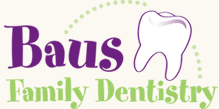Care after Surgery
Bleeding:
Do not disturb the wound. If sutures were placed, they will need to be removed in 7-10 days. Some bleeding or redness in the saliva is normal for 24 hours. Excessive bleeding can be controlled by placing a gauze pad on the surgical site and biting down firmly. Continue pressure for 30 minutes. If bleeding continues, place a moist tea bag over the surgical site for 30 minutes, (the tannic acid in the tea helps to form a clot). If bleeding persists, please call 920-849-9341 for further instructions.
Swelling:
Swelling can be a normal occurrence after surgery. In some instances swelling can be worse on the third to fourth day after surgery. After this time period should the swelling increase, or be accompanied by severe pain or an elevated temperature, please notify your doctor. To minimize swelling, apply an ice pack (a bag of frozen peas works well) to the face corresponding to the surgical site. A good rule for proper circulation is to place the ice pack for 20 minutes at a time then rest for 20 minutes. Please apply ice packs for 24 hours starting the day of surgery. To minimize swelling keep your head elevated, even while sleeping. Use several pillows and prop your head and torso upright while relaxing or sleeping.
Pain Medications:
You may have been given prescriptions for one or more pain medications to help manage discomfort following your surgery. However, in some cases moderate discomfort can be controlled with Tylenol/Acetaminophen, Ibuprofen/Advil/Motrin, or Aleve/Naproxen. Take these and all medications as prescribed and in the manner indicated by your doctor. It is a good idea to begin taking your pain medications while you are still numb.
If you are taking narcotic pain medications, do not drink alcoholic beverages, drive, or operate any machinery for 24 hours after the last dose of narcotic pain medicine. Some patients experience nausea and or vomiting as a result of narcotic pain medications. The risk of nausea can be minimized by taking medications with food. If you have a persistent problem with nausea or vomiting, please notify your doctor.
Antibiotics:
If you have been placed on antibiotics, take them as directed. If you have an unfavorable reaction such as a rash, please discontinue the medication and call the office for further instructions.
Oral Hygiene:
Mouth cleanliness is essential to good healing. Start rinsing 24 hours after your surgery. Swish with warm salt water (1 teaspoon of salt in an 8 oz cup of warm water) three to four times a day. You may begin to brush your teeth 24 hours after surgery. Be gentle in the region(s) of the surgery.
Diet:
Drink plenty of fluids; however, avoid hot liquids and foods. Soft food and cool liquids should be eaten on the day of surgery. You may return to a normal diet, as tolerated, beginning the day after surgery, but avoid crunchy food (popcorn, pretzels, and potato chips) for a week after surgery, as these could become lodged and irritate the surgical area.
Activities:
Resume normal activities a day or so after surgery, or as directed by doctor. Please keep physical activities to a minimum immediately following surgery.
Avoid smoking for as long as possible following surgery! The use of tobacco products slows down the healing process and may lead to developing other complications. We strongly recommend avoiding tobacco products for one full week or forever!
Wearing your Prosthesis:
The use of removable prostheses such as partial dentures, flipper partials, or full dentures is specific for every patient. Your doctor or the surgical staff will advise you regarding your specific situation.
You are scheduled to return for a post-operative visit to make certain healing is progressing satisfactorily. In the meantime, maintain a healthful diet, observe rules for proper oral hygiene, and please do not hesitate to call our office at (920) 849.9341 with any questions.
